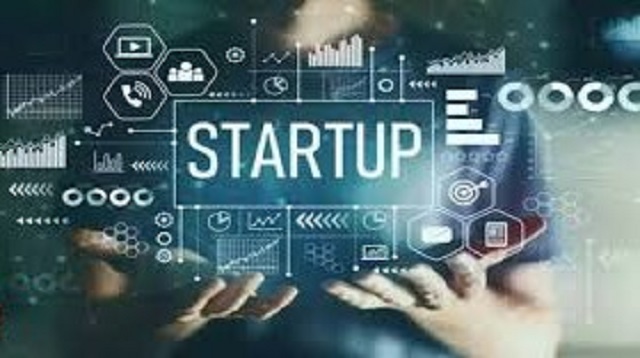News
Top Game Changers for IT Organisations, Users From 2014

Gartner its top predictions, recently, for IT organisations and IT users for 2014 and beyond combined several disruptive topics including Digital Industrial Revolution, Digital Business, Smart Machines and the Internet of Things, the analyst strongly believes these are to serve as more game changers beyond just the IT function.
Gartner Symposium/ITxpo is the world’s most important gathering of CIOs and senior IT executives. This event delivers independent and objective content with the authority and weight of the world’s leading IT research and advisory organization, and provides access to the latest solutions from key technology providers.
“Gartner’s 2013 CEO survey suggests CEOs feel that business uncertainties are declining and yet, CIOs awake each day into a world of technology uncertainty and change,” says Daryl Plummer, managing vice president and analyst, Gartner.
“The savvy CIO will get his or her CEO to recognise the change being brought about by disruptive shifts is coming at an accelerated pace and at a global level of impact.”
Presenting their findings during Gartner Symposium/ITxpo, Gartner’s top 10 predictions are broken out into four categories as follows:
Digital Industrial Revolution
IT is no longer just about the IT function. Instead, IT has become the catalyst for the next phase of innovation in personal and competitive business ecosystems.
One place where this is evident is in the beginnings of a Digital Industrial Revolution that threatens to reshape how physical goods are created using 3D printing.
By 2018, 3D printing will result in the loss of at least $100 billion per year in intellectual property globally.
At least one major western manufacturer will claim to have had intellectual property (IP) stolen for a mainstream product by thieves using 3D printers who will likely reside in those same western markets rather than in Asia by 2015.
The plummeting costs of 3D printers, scanners and 3D modeling technology, combined with improving capabilities, makes the technology for IP theft more accessible to would-be criminals. Importantly, 3D printers do not have to produce a finished good in order to enable IP theft.
The ability to make a wax mold from a scanned object, for instance, can enable the thief to produce large quantities of items that exactly replicate the original.
By 2016, 3D printing of tissues and organs (bioprinting) will cause a global debate about regulating the technology or banning it for both human and nonhuman use.
The U.S. Food and Drug Administration or comparable agency in a developed nation that is charged with evaluating all medical proposals will introduce guidelines that prohibit the bioprinting of life-saving 3D printed organs and tissues without its prior approval by end of 2015.
Bioprinting is the medical application of 3D printers to produce living tissue and organs. The day when 3D bioprinted human organs are readily available is drawing closer.
The emergence of 3D bioprinting facilities with the ability to print human organs can leave people wondering what the effect of it will be on society.
Beyond these questions, however, there is the reality of what 3D bioprinting means in helping people who need organs that are otherwise not readily available.
Digital Business
Digital business refers to business created using digital assets and/or capabilities, involving digital products, services and/or customer experiences, and/or conducted through digital channels and communities.
Gartner’s digital business predictions focus on the effect digital business will have on labor reductions, on consumer goods revenue, and on use of personal data.
While these do not cover the sum total of digital business, they do highlight critical areas of medium to long-term impact.
By 2017, more than half of consumer goods manufacturers will receive 75 percent of their consumer innovation and R&D capabilities from crowdsourced solutions.
Consumer goods companies that employ crowdsourced solutions in marketing campaigns or new product development will enjoy a 1 percent revenue boost over noncrowdsourced competitors by 2015.
Engineers, scientists, IT professionals and marketers at consumer goods companies are engaging crowds much more aggressively and with increasing frequency using digital channels to reach a larger and more anonymous pool of intellect and opinion.
Gartner sees a massive shift toward applications of crowdsourcing, enabled by technology, such as: advertising, online communities, scientific problem solving, internal new product ideas, and consumer-created products.
By 2020, the labor reduction effect of digitization will cause social unrest and a quest for new economic models in several mature economies.
A larger scale version of an “Occupy Wall Street”-type movement will begin by the end of 2014, indicating that social unrest will start to foster political debate.
Digitization is reducing labor content of services and products in an unprecedented way, thus fundamentally changing the way remuneration is allocated across labor and capital.
Long term, this makes it impossible for increasingly large groups to participate in the traditional economic system — even at lower prices — leading them to look for alternatives such as a bartering-based (sub)society, urging a return to protectionism or resurrecting initiatives like Occupy Wall Street, but on a much larger scale.
Mature economies will suffer most as they don’t have the population growth to increase autonomous demand nor powerful enough labor unions or political parties to (re-)allocate gains in what continues to be a global economy.
By 2017, 80 percent of consumers will collect, track and barter their personal data for cost savings, convenience and customization.
The number of Kickstarter-based auctions of personal data will increase by triple-digit percentages by the end of 2014.
The escalation of consumer awareness of data collection practices has set the stage for offering consumers more control over the disposition of personal data — collected both online and offline. As increasing demand and scarcity drives up the value of such data, incentives grow to entice consumers to share it voluntarily.
Meanwhile, consumer interest in self-tracking also suggests that consumers are investing more time and energy in collecting data about themselves.
They increasingly view such data as a key asset for life improvement, which is potentially consistent with the idea of trading it for value under the right circumstances.
By 2020, enterprises and governments will fail to protect 75 percent of sensitive data, and declassify and grant broad/public access to it.
By 2015, at least one more Snowden or WikiLeaks moment will occur, indicating an upward trend in corporations and governments’ acceptance that they cannot protect all sensitive information.
The amount of data stored and used by enterprises and governments is growing exponentially, such that any attempt to protect it all is unrealistic. Instead of facing an unfathomable task of protecting all data, enterprises and governments will focus on protecting only a small part of it, but protecting it well. Wider society will also gain from this approach, enabling it to establish better control over government and business, preventing abuses of power and engendering greater trust.
Smart Machines
The emergence of smart machines adds opportunity and fear as “cognizant and cognitive systems” and can enhance processes and decision making, but could also remove the need for humans in the process and decision effort.
CIOs will see this as a means of delivering greater efficiency, but will have to balance between the active human workforce and the cold efficiency of machines that can learn.
By 2024, at least 10 percent of activities potentially injurious to human life will require mandatory use of a nonoverideable “smart system.”
Economically priced cars with “automated assist” technology added as standard equipment will increase by through 2014 as an indicator of adoption.
The increasing deployment of “smart systems” capable of automatically responding to external events is increasing all the time, but there remains a deep-seated resistance to eliminating the option for human intervention.
The capability, reliability and availability of appropriate technology are not the issue. The willingness of the general population to accept initial widespread deployment and increasing removal of manual override options is the issue.
By 2020, a majority of knowledge worker career paths will be disrupted by smart machines in both positive and negative ways.
Virtual personal assistant usage in business grows more quickly in 2017 and 2018 than iPad usage did in 2010 and 2011/
Gartner forecasts that smart machines will upend a majority of knowledge workers’ career paths by 2020.
Smart machines exploit machine learning and deep-learning algorithms. They behave autonomously, adapting to their environment.
They learn from results, create their own rules and seek or request additional data to test hypotheses.
They are able to detect novel situations, often far more quickly and accurately than people. IT professionals need to recognize that smart machines can create substantial competitive advantages, as well as entirely new businesses.
By 2017, 10 percent of computers will be learning rather than processing.
In 2014, the number of speech recognition applications running on deep neural network algorithms will double.
Deep learning methods, based on deep neural networks, are currently being applied in speech recognition systems as well as some object recognition applications.
Quality of life improves when society is able to derive useful information from the copious amounts of unstructured data collecting in the Internet.
The most important implication of a learning computer is that it expands much less energy to recognize more complex patterns.
Internet of Things
The Internet of Things cements the connection between machines, people and business interactions in the modern era.
With the advent of massively connected devices, businesses, governments and people now have access to more information about themselves and their surroundings than they can actually act on.
Gartner’s prediction focuses on the opportunity to build applications and services that can use that information to create new engagement models for customers, employees and partners, and to foster a new set of business and marketing models that make the word “engagement” a truly valuable asset.
By 2020, consumer data collected from wearable devices will drive 5 percent of sales from the Global 1000.
The number of smartphone apps requesting to share consumer data will increase twofold by 2015, indicating a rise in the number of marketers or proprietors who seek access to customer profile data.
Wearable computing, or wearables, is quickly moving into mainstream society, led by the growing, multibillion dollar health and fitness markets.
Within five years, consumer wearables will become more sophisticated, capturing what the user sees, hears or even feels through biorhythmic responses.
The technical hurdles that have stalled the adoption of wearables (battery life, augmented reality, chip evolution and bandwidth) are quickly eroding; opening doors to creative minds determined to exploit this technology for commercial gain as evidenced by sizable investments in wearable technology from Samsung, Google, Apple and Microsoft.
“While some of these disruptive topics might seem as if they do not have a direct impact on the IT function, we must embrace the notion that IT is now a part of everything,” said Mr. Plummer. “As the structure of businesses and industries change, the IT systems that support them will change and so will the skills, processes and controls needed to keep them functioning. The day when 3D-printed computer architecture exists is upon us, and the days when the digital business, smart machines or the Internet of Things change what computers are may not be far off.”
Culled from: www.gartner.com
News
EFCC Arraigns Two FSDH Bank Officials Over $307k, €50k Fraud


EFCC
News
AfDB Supports Francophone Africa Start-ups with €6.5M

The African Development Bank Group last week approved an investment of €6.5 million in the Saviu II fund in order to support technology start-ups through their seed phase and first institutional fundraising, mainly in French-speaking Central and West Africa.

The Bank will invest €4.5 million as equity and €2 million as a first-loss hedging tranche on behalf of the European Commission, under the Boost Africa Programme.
This participation of the Bank Group will enable the Saviu II fund to give priority to companies with a strong technological or digital component.
Saviu II, the second investment vehicle of Saviu Partners, plans to invest between €500,000 and €3 million in about 20 technology or technology-oriented business-to-business start-ups in the seed phase or carrying out first institutional fundraising.
The Saviu II venture capital fund aims to make at least 60% of its commitments in the French-speaking countries of West and Central Africa: Côte d ‘Ivoire, Cameroon, Benin, Senegal, Togo, Burkina Faso and Mali.
The fund can also co-invest in promising technology companies in East Africa that have a strong team and business model, and whose strategy includes entering the market in French-speaking West African countries and establishing a strong presence there.
In addition, the fund will devote a dedicated envelope to pre-seed investments, focusing on minority equity investments, usually in co-investment with studios, incubators or other ecosystem partners.
News
Nigeria Inks $1.3bn MoU with AFC for Alumina Refinery, Mining Push

Nigerian Government has signed a $1.3 billion Memorandum of Understanding (MoU) with Africa Finance Corporation (AFC) via the Solid Minerals Development Fund (SMDF) to fund an alumina refinery, national geoscience mapping, and a strategic investment vehicle for mining growth.

Special Assistant to the Minister of Solid Minerals Development, Segun Tomori, said the refinery will process one million tonnes of bauxite yearly using a modern Bayer process, powered by an on-site gas-fired cogeneration plant.
Minister Dele Alake called it a transformative milestone boosting GDP, aligning with reforms that improve investment climate, regulations, and licensing to attract private capital. He directed agencies to fast-track permits.
The 20-year project at 95% utilization eyes 19 million tonnes total output, $1.2 billion annual GDP addition, $25 billion economic impact, and $8 billion forex earnings, per feasibility studies.
SMDF Executive Secretary Fatima Shinkafi termed it the agency’s biggest funding deal, supporting value-addition policy.
The partnership extends to geoscience mapping for mineral data, de-risking exploration, and a joint vehicle for mining assets.
Permanent Secretary Engr. Farouk Yabo praised the reforms. Shinkafi signed for government; AFC’s Franklin Edochie for the corporation, witnessed by AFC CEO Samaila Zubairu.
Tomori positioned it as Nigeria’s largest private mining investment and FDI magnet.

 E-Financial3 days ago
E-Financial3 days agoIran-Israel-US Conflict and CBN’s FX Gains: A Stress Test for Nigeria’s Monetary Stability

 E-Financial3 days ago
E-Financial3 days agoMutual Benefits Assurance Reaffirms Full Regulatory Compliance, Enhanced Governance

 General News3 days ago
General News3 days agoJAMB Uncovers AI-Driven Fraud Targeting UTME Candidates, Warns Parents

 General News3 days ago
General News3 days agoSERAP Asks FCCPC to Investigate Google, Meta, Others over Alleged Rights Abuses

 Telecom2 days ago
Telecom2 days agoSunil Bharti Mittal Conferred GSMA Lifetime Achievement Award for Transforming Global Telecommunications

 News3 days ago
News3 days agoTeamApt, Awabah Partner to Boost Pension Drive for Nigerians

 News3 days ago
News3 days agoFlashChange CEO, Bidemi Oke, Urges Startups to Build Strong Governance Structures Early

 Telecom2 days ago
Telecom2 days agoWhy Digital Trust Matters: Secure, Responsible AI for African SMEs?
























